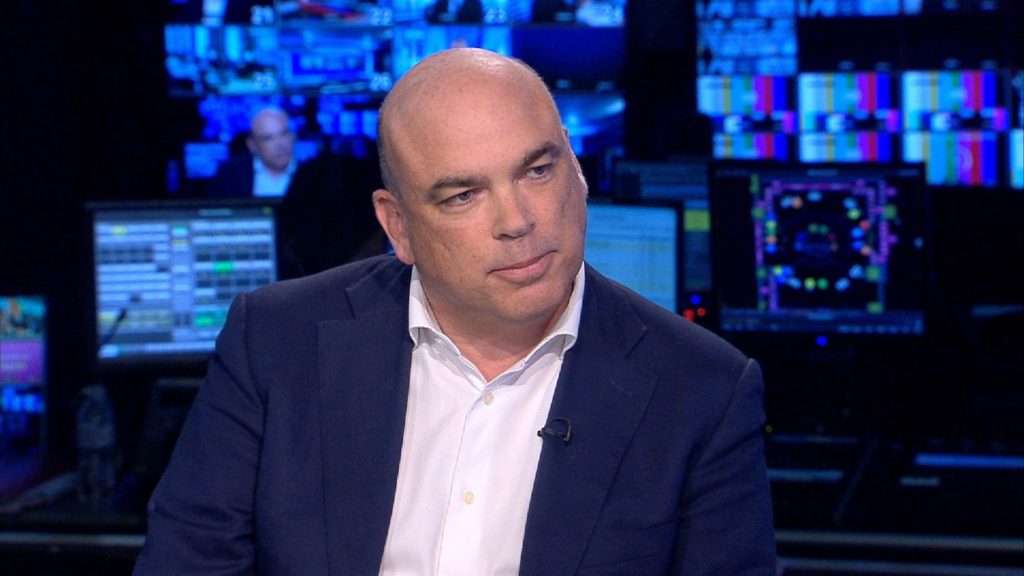UK politicians and business people will be closely watching the extradition of Mike Lynch | Business News

The extradition of Mike Lynch to the United States will undoubtedly alarm a number of British business people.
Dr Lynch faces charges over Autonomy, the software company he founded and which was bought by Hewlett Packard in 2011 for $11bn.
The US hardware maker subsequently wrote off $8bn of the purchase price and has accused Dr Lynch of manipulating Autonomy’s accounts.
Central to Dr Lynch’s attempt to avoid extradition was that Autonomy was a British company, listed on the London Stock Exchange, subject to British accounting rules and whose takeover was carried out under British takeover rules.
Therefore, they argued, the British courts were the place to hear such a case.
The UK courts found against him on the grounds that Autonomy had derived the majority of its sales in the US and that the losses incurred by HP had been suffered in the US and by American investors.
Unhelpfully for Dr Lynch, the UK’s Serious Fraud Office had dropped its own investigation into the takeover in 2015, indicating the US was the most appropriate jurisdiction in which any such proceedings should take place.
The US authorities also argued that claims made by Dr Lynch about Autonomy’s financial performance in phone calls and emails to HP’s advisers and executives had broken US wire fraud law.
The implications for British business people, then, are that anyone who sells their business to a US buyer, who derives a proportion (however small) of their sales in the US, or whose shares are bought by a US investor, may be open to similar treatment if perceived of wrongdoing.
It is why Dr Lynch’s MP, the Conservative Party chairman Greg Hands, has previously argued the existence of the treaty will deter entrepreneurship and deter some British businesses from selling interests to US investors.
Aggressively going after British business people
The US certainly has form in going after British business people aggressively.
Among the more notorious cases was that of Nigel Potter, the former chief executive of the gambling and dog track operator Wembley Group, who was jailed in 2005 for three years after being convicted on three counts of conspiring to commit wire fraud.
He was forced to serve his sentence in a high security prison because, as an “alien”, he was deemed a flight risk.
Unlike Dr Lynch, who fought extradition tooth and nail, Mr Potter had travelled to the US voluntarily in an attempt to clear his name. The mild-mannered accountant even found himself being clapped in leg irons when undergoing cancer treatment.
Then there was Ian Norris, the former chief executive of Morgan Crucible, the industrial materials company.
He was accused by the US of conspiring to fix the price of car parts and avoided extradition when the House of Lords ruled he could not be convicted of the offences and, accordingly, not extradited.
The US then went after Mr Norris on a lesser charge of conspiring to obstruct a criminal antitrust inquiry – and ended up being jailed for 18 months.
Most famous were the so-called “NatWest Three” – Giles Darby, David Bermingham and Gary Mulgrew – who were convicted for wire fraud while working for NatWest and doing business for the crashed US energy trading group Enron.
Like Dr Lynch, they argued that, as British nationals working for a British bank and whose alleged offences took place in Britain, they should be tried in Britain.
The courts, again, disagreed.
Prior to their extradition, the three argued they would not receive a fair trial in the US, a concern also flagged by Dr Lynch and his supporters.
Mr Bermingham later wrote in The Times: “It is a near statistical certainty that someone extradited to the US will end up guilty, most probably through a plea bargain rather than going to trial, because the criminal justice system in the US is so heavily geared towards this outcome… a toxic combination of political machismo and judges who are political appointees produces a system where few sane people will run the risk of going to trial.
“Nearly 98% of people indicted in the federal system will plea bargain, because the penalties for losing at trial are so disproportionate.”
There is also a suspicion that the case against Dr Lynch has been motivated by spite on the part of HP for the way it ended up overpaying for Autonomy.
Meg Whitman, the former chief executive under whom HP pursued civil charges against Mr Lynch, has gone on to pursue a career in politics and is currently the US ambassador to Kenya. It is easy to see how the US Department for Justice might be tempted to take up the cudgels on behalf of such a big, established US company.
The embarrassment for HP from the Autonomy deal is lasting – not least because, in the City, Dr Lynch was always quite a divisive figure.
Had HP done better due diligence when it acquired Autonomy, it would not have had to look very far to find analysts who had accused the company of fiddling its figures.
The political dimension
There is a broader dimension to the case, too.
Many MPs, among them the former Brexit secretary David Davis, the security minister Tom Tugendhat and the former Liberal Democrat leaders Sir Vince Cable and Sir Menzies Campbell, say Dr Lynch’s case raises broader issues of UK sovereignty.
They argue that the extradition treaty between the UK and the US signed by the Blair government in 2003 is one-sided and that more Britons seem to be extradited to the US than the other way round.
That criticism has intensified in the wake of America’s refusal to extradite the diplomat’s wife Anne Sacoolas for causing the death of the British teenager Harry Dunn.
Politicians, then, will be watching closely to see what happens to Dr Lynch.
So, too, will many British business people.

Recent Comments